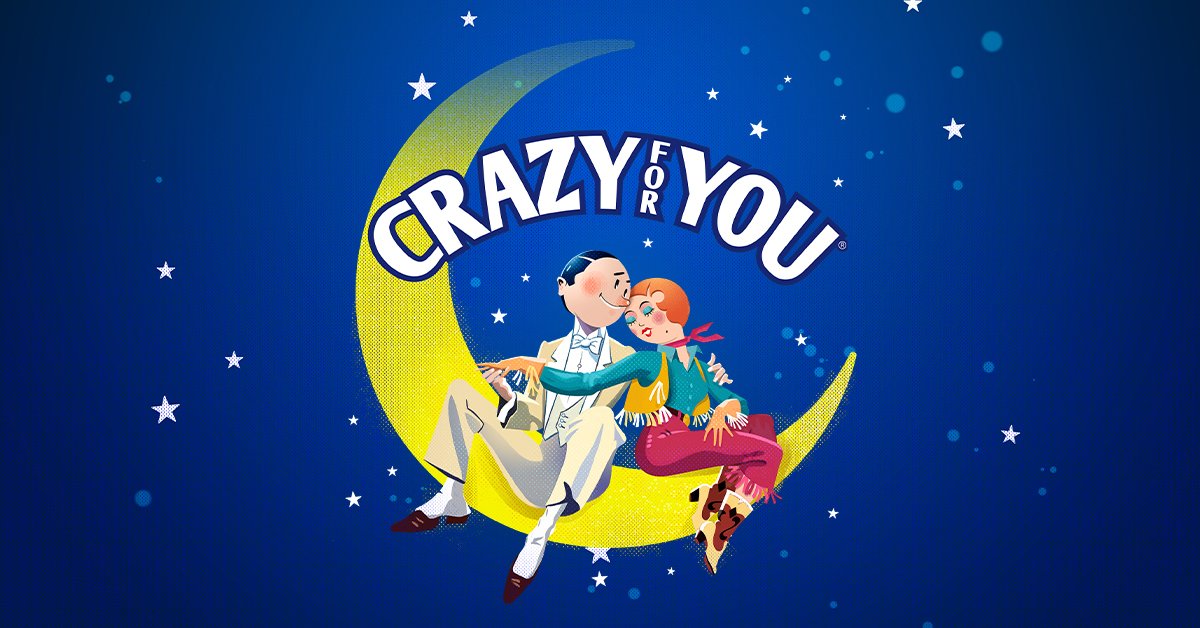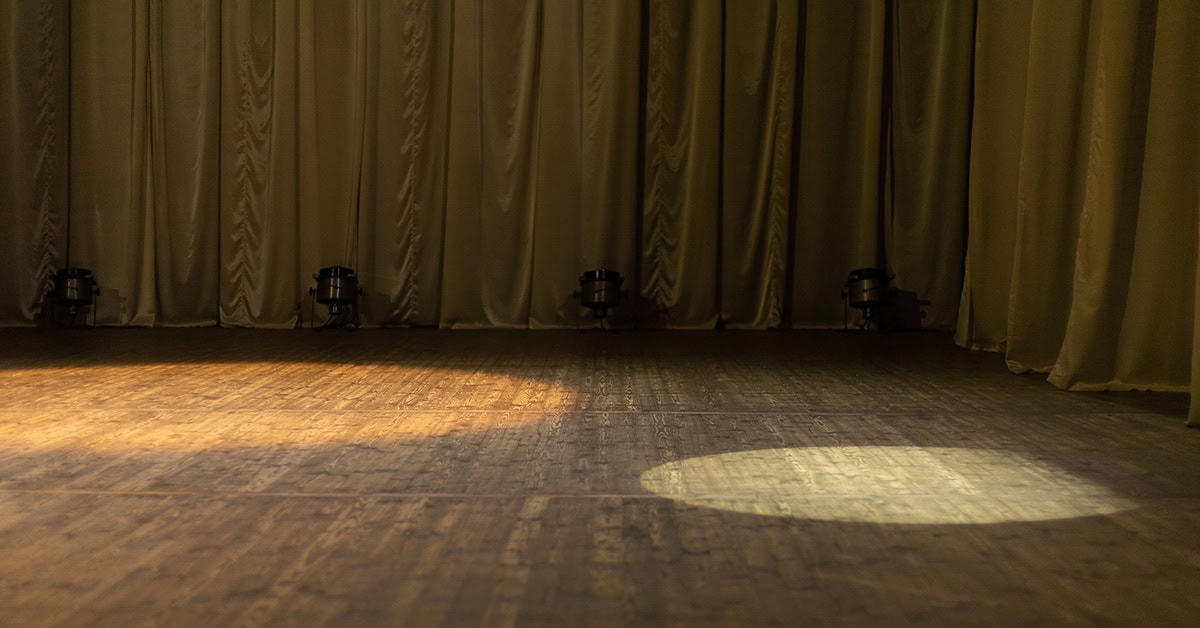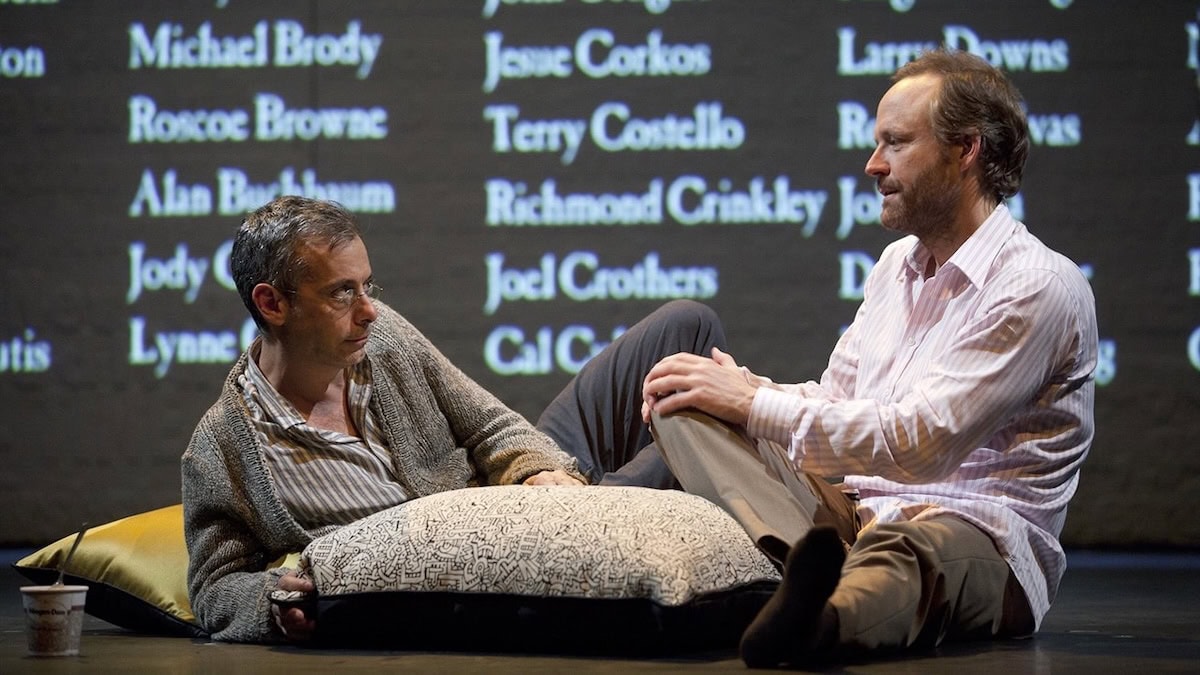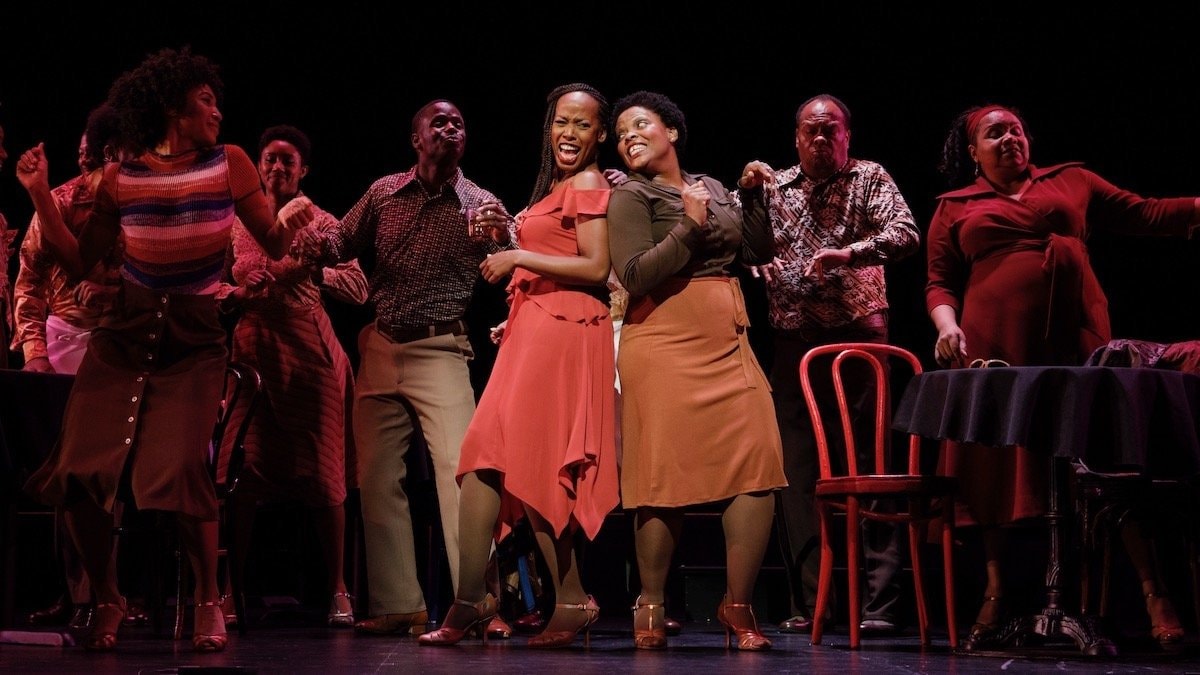
Crazy For You® (US/UK), the hit Broadway musical featuring a trove of the Gershwins’ most popular tunes, took the theatre world by storm in 1992. Winning three Tony Awards, including Best Musical, the show was a critical and popular smash, filling the seats of the Shubert Theatre for years. Since its successful Broadway run, Crazy For You® has continued to delight audiences in professional, amateur and school productions worldwide. We recently caught up with the show’s book writer, Ken Ludwig (who earned a Tony Award nomination for his libretto), to discuss the musical’s development, history and enduring appeal.
…
Crazy For You® is a classic boy-meets-girl romantic comedy, complete with unrequited love, broad comedy, mistaken identity, a host of colorful characters and glorious production numbers, large and small. For those who don’t know it, can you briefly summarize the story?
Crazy For You® is indeed a boy-meets-girl story. The boy, Bobby, is a banker in New York City who longs to be a star of musical comedy, but his overbearing mother refuses to let him. The girl, Polly, lives in the forgotten town of Deadrock, Nevada. Bobby heads west to foreclose on Deadrock’s crumbling opera house, takes one look at Polly, and falls in love. When Polly learns that he’s from the bank, she won’t have anything to do with him, so Bobby has to pull out all the stops to save the theatre and win her love.
How did you first connect with the project?
A wonderful man named Roger Horchow, ultimately the show’s producer, called me out of the blue and asked if I would like to write a new musical using the songs of George and Ira Gershwin. He had acquired the rights from the Gershwin estate and was looking for someone to conceive a new musical highlighting some of the greatest songs ever written. After turning him down twice on the grounds that I didn’t know how to write musicals, only plays (can you believe it?!), I finally got it through my thick skull that this was the best opportunity imaginable, and I got right to work.
The show was “inspired by” Girl Crazy (US/UK), the 1930 musical featuring a score by George & Ira Gershwin and a book by Guy Bolton and John McGowan. I recently reread the script to Girl Crazy and it is very different from Crazy For You®! Did you just scrap that 1930 script and start from scratch?
When I read the old libretto to Girl Crazy, I realized that it was creaky and outdated, so I created a whole new story. I had absolute free rein to do what I wanted, and I didn’t feel any obligation to stick to Girl Crazy at all. In fact, the only really important thing I did retain was the idea of an easterner going west. That allowed me to use two of the songs—“Bidin’ My Time” and “Could You Use Me?”—near the top of the show to set up the story musically.
1930’s Girl Crazy was an early Broadway musical, written well before the “integrated musical” became the Broadway standard, and feels more like a revue than a modern musical. Crazy For You®, on the other hand, is a fully integrated musical comedy. What were your goals in converting Girl Crazy into a fully realized musical?
My goal was certainly to write an integrated musical: a strong show filled with songs that told the story. Like a play, a musical needs a compelling story that invests us in the characters, has funny curve balls along the way, and has a happy ending that’s earned. I worked as hard to do that in Crazy For You® as I’ve done in all of my straight plays.
As you pointed out, Crazy for You® isn’t an adaptation of Girl Crazy at all. It has an entirely original story, and all the characters were written from scratch.
The musical features some of the most beloved songs from the Great American Songbook, and you deftly managed to make them all feel as if they were written specifically for your script. How did you select which Gershwin songs to use?
I was limited to only the music that George and Ira wrote together—that was my remit. As soon as the contracts were signed, I ran out and bought up every CD I could find with songs they wrote together: about 400 songs in total. With that wealth of material, I was determined to select only songs that both moved the story forward and were great numbers in their own right.
Of course, I’m a playwright first, so as I wrote the story, I identified the moments that needed to be expressed in song and searched for songs that met those moments. For example, I knew I needed a big number that showed the excitement of opening night at the theatre and searched until I found “Tonight’s the Night.” Likewise, I knew there had to be a comic song between Bobby and Zangler in Act II when Zangler realizes Bobby has been impersonating him, but I couldn’t for the life of me find what I was looking for. So I called Michael Feinstein for help. Michael is not only the greatest living authority on the Great American Songbook, he was Ira’s personal secretary for many years. Michael suggested I look at a song he’d recorded years ago called “What Causes That,” and it was just right.
Once I had a sense of the story, I worked on the script and the song selection at the same time. This had two results. First, it meant that I sometimes had to adjust the story to fit in with a favorite song I wanted to use.
For example, I fell in love with the song “Naughty Baby” in the sizzling performance by Maureen McGovern. I wanted to work the number into the musical in the worst way. That ultimately led me to rewrite the character of Irene as a vixen so she could sing it to Lank.
Second, I had to leave some of my favorite Gershwin songs on the table because no matter how hard I tried, I couldn’t make them fit. For example, one of my very favorite Gershwin songs is “Our Love is Here to Stay.” It was the last song that George and Ira wrote together, and it always felt to me as though Ira wrote it specifically as a tribute to George. Perhaps he had a premonition of George’s sudden death. In any case, I badly wanted to use it, but try as I might, I couldn’t make it fit into the story.
You are a master of comedy (Barry Edelstein, Artistic Director of The Old Globe, said, “Ken Ludwig is America’s preeminent comic playwright. Our field has no one else like him”) and your plays, which include Lend Me a Tenor, Moon Over Buffalo (US/UK), A Fox on the Fairway (US/UK) and Dear Jack, Dear Louise (US/UK), are among the most popular plays ever produced. Yet, after Crazy For You®, you never wrote another high-profile musical. Was the experience so terrible? (Laughs)
In short—no! I loved writing Crazy For You®, but but I became so intent on writing plays that I never sought out collaborators for musicals. I think I would do one now if a composer and lyricist came to me with the right idea.
Crazy For You® has certainly withstood the test of time! Audiences continue to adore it 30 years after its Broadway debut. Why do we still love it?
I think it has endured because it tells a truly heartfelt story. It’s about two lost souls who are trying to find their centers, and they find them in each other. In plays, and particularly in musicals, the heartbeat of the show matters more than anything else. The love story between Bobby and Polly is at first unexpected, especially because Polly doesn’t realize she’s falling in love. When she finally admits her feelings to herself, they come together with the exuberant music of George and Ira’s “I’ll Build a Stairway to Paradise,” and we feel their sense of joy and fulfillment right alongside them. That feeling is why we love the theatre.
The other reason for the show’s popularity is the absolute genius of George and Ira Gershwin. Along with Irving Berlin, they wrote the best songs in the Great American Songbook. And by the way, if you know any producers interested in the yet-unproduced Irving Berlin musical I wrote based on Easter Parade, please send them my way.
What makes this show ideal for theatres and schools? What elements of the musical appeal most to producers and audiences?
I’m always thrilled when I read about the hundreds and hundreds of productions of Crazy For You® in the US and around the world. The show seems to strike a chord in virtually every community where it’s produced: in grade schools, high schools, colleges, in community theatres, dinner theatres, and professional theatres of the highest polish.
Musicals work best when they’re set in interesting environments. My Fair Lady contrasts London’s Cockney environs with high society. Guys and Dolls is set in the Runyon-esque world of gambling and night clubs. The Music Man takes place in Gary Indiana, a town of warmth and humor in middle-America. The specificity of each show’s world makes us want to inhabit that space with the characters.
Crazy For You® is set in a very specific world among Broadway hopefuls who end up in the old west among big-hearted cowboys. Thanks to the wide variety of colorful characters, from showgirls to saloon-owners, from theatre veterans to a larger-than-life Hungarian impresario, the good humor of the show always resonates.
What do you hope audiences take away from Crazy For You® in 2022? Why do we need this show now?
It’s blazingly clear to me that we’ve never needed comedy, romance, and joyous music that lifts us out of our seats more than we do at this moment. We have been through an agonizing two years. What we all need is some relief and high good humor. I think there has never been a better moment for Crazy For You® than right now.
…
For more information about licensing Crazy For You® and other great plays and musicals, visit Concord Theatricals in the US or UK.
Header Image: ©2019 by Subplot Studio.

Recommended Shows for Drama Festivals

The Truth Behind… The Normal Heart

